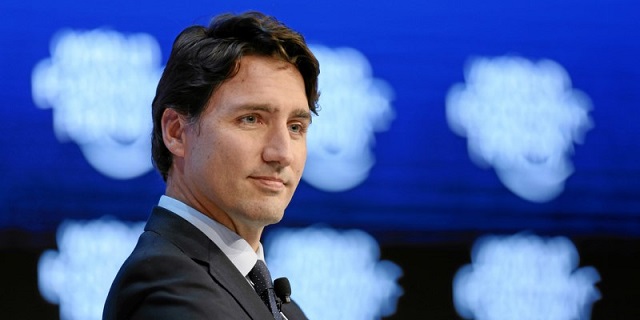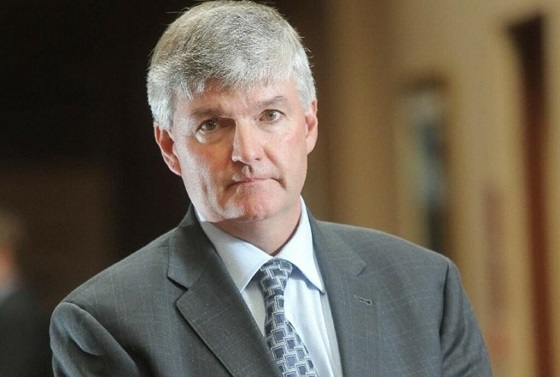Business
Balanced budget within reach—if Ottawa restrains spending

From the Fraser Institute
By Jake Fuss and Grady Munro
This level of debt-financed spending has contributed to an estimated $941.9 billion increase in gross federal debt from 2014/15 to 2023/24. In other words, partly due to its spending habits, nearly one in every two dollars of debt currently held by the federal government has been accumulated under Prime Minister Trudeau.
The Trudeau government will table its next budget on April 16. Federal finances have deteriorated in recent years due to the Trudeau government’s string of budget deficits, and high spending has led to a significant amount of debt accumulation, which imposes costs on current and future generations. Yet if the government presents a plan in Budget 2024 to rein in spending growth, it could balance the budget in two years.
Far from its promise to balance the budget by 2019, the Trudeau government has instead run nine consecutive deficits during its time in office. And it doesn’t intend to stop, with annual deficits exceeding $18 billion planned for the next five years.
The root cause of these deficits is the government’s inability to restrain spending. Since 2014/15, annual program spending (total spending minus debt interest) has increased $193.6 billion—or 75.5 per cent. If we control for population growth and inflation, this represents an extra $2,330 per person.
This level of debt-financed spending has contributed to an estimated $941.9 billion increase in gross federal debt from 2014/15 to 2023/24. In other words, partly due to its spending habits, nearly one in every two dollars of debt currently held by the federal government has been accumulated under Prime Minister Trudeau. Debt accumulation will only continue barring a change in course, as the federal government is expected to add another $476.9 billion in gross debt over the next five years.
Simply put, the Trudeau government’s approach towards federal finances has been characterized by high spending, large deficits and significant debt accumulation.
This approach to fiscal policy is concerning. Growing government debt leads to higher debt interest costs, all else equal, which eat up taxpayer dollars that could otherwise have provided services or tax relief for Canadians. And these costs are not trivial. For example, in 2023/24 the federal government is expected to spend more to service its debt ($46.5 billion) than on child-care benefits ($31.2 billion).
Accumulating debt today also increases the tax burden on future generations of Canadians—who are ultimately responsible for paying off this debt. Research suggests this effect could be disproportionate, with future generations needing to pay back a dollar borrowed today with more than one dollar in future taxes.
Although the Trudeau government promises more of the same for the coming years, this need not be the case. Instead, a recent study shows the federal government could balance the budget in two years if it slows spending growth starting in 2024/25. The following figures highlight this approach. The first chart below displays currently planned federal program spending from 2023/24 to 2026/27, compared with the spending path that will balance the budget, while the second chart shows the resulting budgetary balances.
As shown by the first chart, to balance the budget by 2026/27 the federal government must limit annual spending growth to 0.3 per cent for two years. As a result, annual nominal program spending would rise from $469.4 billion in 2024/25 to $472.3 billion in 2026/27. For comparison, the Trudeau government currently plans to increase annual spending up to $499.4 billion during that same period.
Should the government implement this level of spending restraint, the federal deficit would shrink to $21.8 billion in 2025/26 (as opposed to $38.3 billion), and the budget would be balanced by 2026/27 (as opposed to a $27.1 billion deficit). All told, by slowing spending growth to balance the budget, the federal government would avoid accumulating significant debt. Moreover, this also sets the government up to return to budget surpluses in the following years, which could be used to start chipping away at the mountain of federal debt already on the books.
Rather than continue its current approach to fiscal policy, and risk needing to employ more drastic cuts in the future, the Trudeau government should implement modest spending restraint now and balance the budget.
Authors:
Business
Taxpayers criticize Trudeau and Ford for Honda deal

From the Canadian Taxpayers Federation
Author: Jay Goldberg
The Canadian Taxpayers Federation is criticizing the Trudeau and Ford governments to for giving $5 billion to the Honda Motor Company.
“The Trudeau and Ford governments are giving billions to yet another multinational corporation and leaving middle-class Canadians to pay for it,” said Jay Goldberg, CTF Ontario Director. “Prime Minister Justin Trudeau is sending small businesses bigger a bill with his capital gains tax hike and now he’s handing out billions more in corporate welfare to a huge multinational.
“This announcement is fundamentally unfair to taxpayers.”
The Trudeau government is giving Honda $2.5 billion. The Ford government announced an additional $2.5 billion subsidies for Honda.
The federal and provincial governments claim this new deal will create 1,000 new jobs, according to media reports. Even if that’s true, the handout will cost taxpayers $5 million per job. And according to Globe and Mail investigation, the government doesn’t even have a proper process in place to track whether promised jobs are actually created.
The Parliamentary Budget Officer has also called into question the government’s claims when it made similar multi-billion-dollar handouts to other multinational corporations.
“The break-even timeline for the $28.2 billion in production subsidies announced for Stellantis-LGES and Volkswagen is estimated to be 20 years, significantly longer than the government’s estimate of a payback within five years for Volkswagen,” wrote the Parliamentary Budget Officer said.
“If politicians want to grow the economy, they should cut taxes and red tape and cancel the corporate welfare,” said Franco Terrazzano, CTF Federal Director. “Just days ago, Trudeau said he wants the rich to pay more, so he should make rich multinational corporations pay for their own factories.”
Business
UN plastics plans are unscientific and unrealistic

News release from the Coalition of Concerned Manufacturers and Businesses of Canada
“We must focus on practical solutions and upgrading our recycling infrastructure, not ridiculous restrictions that will harm our health care system, sanitary food supply, increase costs and endanger Canadians’ safety, among other downsides.”
This week Ottawa welcomes 4,000 delegates from the United Nations to discuss how they will oversee a reduction and even possible elimination of plastics from our lives. The key problem is no one has ever figured out how they will replace this essential component of our modern economy and society. The Coalition of Concerned Manufacturers and Businesses of Canada (CCMBC) has launched an information campaign to discuss the realities of plastic, how it contributes massively to our society and the foolishness of those who think plastics can be eliminated or greatly reduced without creating serious problems for key industries such as health care, sanitary food provision, many essential consumer products and safety/protective equipment, among others. CCMBC President Catherine Swift said “The key goal should be to keep plastics in the economy and out of the environment, not eliminate many valuable and irreplaceable plastic items. The plastics and petrochemical industries represent about 300,000 jobs and tens of billions contribution to GDP in Canada, and are on a growth trend.”
The UN campaign to ban plastics to date has been thwarted by reality and facts. UN efforts to eliminate plastics began in 2017, motivated by such terrible images as rivers with massive amounts of floating plastic and animals suffering from negative effects of plastic materials. Although these images were dramatic and disturbing, they do not represent the big picture of what is really happening and do not take into account the many ways plastics are hugely positive elements of modern society. Swift added “Furthermore, Canada is not one of the problem countries with respect to plastics waste. Developing countries are the main culprits and any solution must involve helping the leading plastics polluters find workable solutions and better recycling technology and practices.”
The main goal of plastic is to preserve and protect. Can you imagine health care without sanitary, flexible, irreplaceable and recyclable plastic products? How would we keep our food fresh, clean and healthy without plastic wraps and packaging? Plastic replaces many heavier and less durable materials in so many consumer products too numerous to count. Plastics help the environment by reducing food waste, replacing heavier materials in automobiles and other products that make them more energy-efficient. Many plastics are infinitely recyclable and innovations are taking place to improve them constantly. What is also less known is that most of the replacements for plastics are more expensive and actually worse for the environment.
Swift stated “Environment Minister Steven Guilbeault has been convinced by the superficial arguments that plastics are always bad despite the facts. He has pursued a campaign against all plastics as a result, without factoring in the reality of the immense value of plastic products and that nothing can replace their many attributes. Fortunately, the Canadian Federal court overturned his absurd ban on a number of plastic products on the basis that it was unscientific, impractical and impinged upon provincial jurisdiction.” Sadly, Guilbeault and his Liberal cohorts plan to appeal this legal decision despite its common-sense conclusions. Opinion polls of Canadians show that a strong majority would prefer this government abandon its plastics crusade at this point, but history shows these Liberals prefer pursuing their unrealistic and costly ideologies instead of policies that Canadians support.
The bottom line is that plastics are an essential part of our modern society and opposition has been based on erroneous premises and ill-informed environmentalist claims. Swift concluded “Canada’s record on plastics is one of the best in the world. This doesn’t mean the status quo is sufficient, but we must focus on practical solutions and upgrading our recycling infrastructure, not ridiculous restrictions that will harm our health care system, sanitary food supply, increase costs and endanger Canadians’ safety, among other downsides.” The current Liberal government approach is one that has no basis in fact or science and emphasizes virtue-signaling over tangible and measurable results. Swift noted “The UN’s original founding purpose after World War II was to prevent another world war. Given our fractious international climate, they should stick to their original goal instead of promoting social justice warrior causes that are unhelpful and expensive.”
The CCMBC was formed in 2016 with a mandate to advocate for proactive and innovative policies that are conducive to manufacturing and business retention and safeguarding job growth in Canada.
SOURCE Coalition of Concerned Manufacturers and Businesses of Canada
-

 Business2 days ago
Business2 days agoDon’t be fooled by high-speed rail
-

 Addictions2 days ago
Addictions2 days agoBritish Columbia should allow addicts to possess even more drugs, federal report suggests
-

 Alberta1 day ago
Alberta1 day agoAlberta rejects unconstitutional cap on plastic production
-

 Censorship Industrial Complex1 day ago
Censorship Industrial Complex1 day agoAustralian politicians attack Elon Musk for refusing to remove video of Orthodox bishop’s stabbing
-

 Also Interesting2 days ago
Also Interesting2 days agoIs the Anger Toward Fiat Currency Justified?
-

 Alberta2 days ago
Alberta2 days agoActivity-Based Hospital Funding in Alberta: Insights from Quebec and Australia
-

 Business2 days ago
Business2 days agoUN plastics plans are unscientific and unrealistic
-

 Business2 days ago
Business2 days agoTaxpayers criticize Trudeau and Ford for Honda deal








